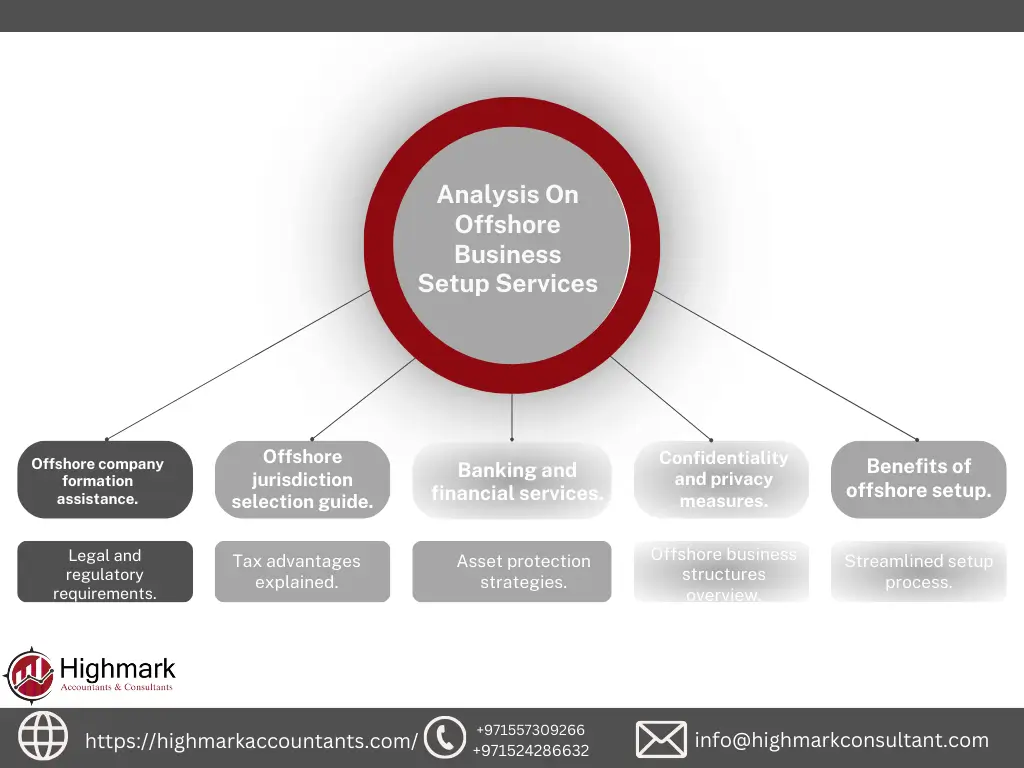Demystifying Offshore Firm Formations: Exactly How They Operate and What to Anticipate
Offshore business formations can seem complex and enigmatic. Offshore Company Formations. These entities, usually established for tax obligation advantages and personal privacy, operate under one-of-a-kind lawful structures. Business owners might discover themselves maneuvering with a maze of regulations and compliance demands. Recognizing the ins and outs is essential for success. What are the real benefits? What are the potential challenges? A closer examination discloses the nuances that might affect decision-making considerably
Understanding Offshore Business: Types and meanings
Offshore business are entities developed in a territory outside of a person's or organization's main country of residence, typically for purposes associated with tax obligation optimization, possession defense, or regulative benefits. These firms can take various kinds, including restricted liability business (LLCs), worldwide organization companies (IBCs), and offshore counts on. Each kind serves specific functions and attract various needs.
Restricted responsibility firms provide proprietors with defense from individual liability, while global business companies are preferred for their versatility and very little reporting demands. Offshore depends on, on the various other hand, are utilized largely for estate preparation and possession security.
The option of jurisdiction considerably affects the company's operations, as some areas supply a lot more positive legal frameworks and personal privacy defenses. Offshore Company Formations. Recognizing the differences in between these types is important for individuals and companies taking into consideration offshore frameworks, as each choice lugs different effects for administration and conformity
The Benefits of Developing an Offshore Business
Developing an overseas company can provide many benefits, especially for those seeking to improve their financial methods and protect their properties. One considerable advantage is tax obligation optimization; several territories offer beneficial tax prices or exceptions, permitting businesses to retain more revenues. In addition, offshore business can provide a layer of privacy, securing the identities of owners and investors from public examination.
One more advantage is possession defense. By putting possessions in an overseas entity, people can safeguard their wealth from prospective legal cases or political instability in their home nations. This structure additionally facilitates worldwide service procedures, enabling simpler access to varied clients and global markets.
Furthermore, the establishment of an offshore firm can boost reputation and prestige, interesting clients that value global company techniques. Generally, these benefits make offshore company formations an appealing choice for services and individuals aiming for monetary growth and safety and security.
Secret Considerations Prior To Forming an Offshore Entity
Before developing an overseas entity, a number of important factors need to be analyzed. Legal compliance demands, tax obligation ramifications and benefits, along with territory option, play a substantial function in the decision-making procedure. Comprehending these factors to consider can help individuals and organizations browse the intricacies of overseas business formations efficiently.

Lawful Compliance Demands
When considering the development of an offshore entity, understanding lawful compliance requirements is necessary to ensure adherence to both international and neighborhood regulations. Prospective company owner should acquaint themselves with policies governing firm enrollment, reporting commitments, and functional requirements in the selected jurisdiction. This consists of confirming the legal needs for supervisors and shareholders, along with making sure conformity with anti-money laundering (AML) and know-your-customer (KYC) guidelines. Furthermore, organizations must stay knowledgeable about any kind of licensing requirements specific to their sector. Involving local lawful and economic specialists can provide beneficial understandings, making certain that all needed paperwork is prepared and sent appropriately. Inevitably, comprehensive expertise of legal conformity aids alleviate risks and promotes a lasting offshore operation.
Tax Ramifications and Benefits
Numerous company owners consider the tax obligation ramifications and advantages of developing an offshore entity as a critical consider their decision-making process. Offshore firms can supply substantial tax obligation benefits, such as decreased business tax obligation prices, exception from specific regional taxes, and the ability to delay tax obligations on international earnings. These benefits can cause boosted earnings and money flow, making offshore frameworks appealing for global business procedures. Additionally, the possibility for tax obligation treaties might better reduce tax responsibilities. It is crucial for organization owners to understand the complexities entailed, including conformity with both neighborhood and global tax regulations. Involving with tax experts is advisable to navigate these intricacies properly and guarantee excellent tax obligation preparation methods.
Territory Selection Factors
What aspects should one think about when picking a territory for offshore company development? Trick considerations consist of tax performance, regulative setting, and political security. Jurisdictions with desirable tax obligation programs can substantially affect profitability. The regulative landscape must use versatility and convenience of compliance, enabling for reliable company operations. Political stability is vital, as it guarantees the security of assets and continuity of procedures. In addition, the online reputation of the territory can influence customer count on and company connections. Availability to financial solutions and the schedule of specialist support solutions are likewise important. Understanding local laws concerning ownership, coverage, and personal privacy requirements is essential to ascertain that the overseas entity aligns with the service proprietor's goals and lawful obligations.
Possession The Refine of Establishing an Offshore Business
Establishing an overseas firm includes a series of tactical steps that require cautious preparation and compliance with international laws. A private have to choose a suitable territory that lines up with their company objectives and provides desirable tax benefits. Following territory option, the following action is to choose a special business name and prepare the required documentation, including posts of incorporation and shareholder agreements.
When the paperwork is all set, it needs to be submitted to the appropriate authorities together with the needed fees. After approval, the company will get a certificate of consolidation, officially developing its lawful presence. The specific need to after that open a company financial institution account to assist in monetary deals.
Ultimately, preserving an offshore company involves sticking to ongoing compliance needs, such as yearly reporting and tax commitments, which vary by territory. Therefore, understanding each step is crucial for a successful offshore company development.
Legal and Governing Structure for Offshore Firms
While developing an overseas business can use substantial benefits, it is important to navigate via the complicated lawful and regulatory framework that controls such entities. Each territory has its very own collection of laws that dictate every little thing from firm formation to taxes and compliance needs. These guidelines are made to stop prohibited tasks, such as cash laundering and tax evasion, and frequently need complete documentation and transparency.
Secret components of this framework include the need of selecting regional supervisors, keeping a licensed office, and sticking to yearly coverage obligations. Additionally, lots of territories enforce details licensing requirements for sure service tasks. Understanding these legal specifications is crucial for ensuring conformity and mitigating dangers associated with fines or lawful conflicts. As a result, involving with lawyers who concentrate on overseas business can aid in navigating via this complex landscape, eventually promoting a effective and compliant overseas company procedure.
Common Mistaken Beliefs About Offshore Firms
Many individuals hold false impressions about offshore companies, typically equating them with tax obligation evasion and prohibited activities. It is vital to acknowledge that these entities can run legitimately within a framework created for legit organization techniques. Making clear the legal status of offshore companies can help eliminate these misconceptions and advertise a much more exact understanding of their function.
Tax Obligation Evasion Misconceptions
Regardless of the expanding appeal of offshore visit homepage companies, misconceptions regarding their use for tax evasion continue. Numerous individuals erroneously believe that developing an offshore entity is entirely a means to stay clear of tax obligations. Nevertheless, overseas business are frequently used for legitimate purposes, such as property protection, worldwide business expansion, and investment diversification. The perception that all offshore activities correspond to immoral tax obligation evasion neglects the intricacies of international tax obligation guidelines and conformity demands. Additionally, the substantial bulk of overseas territories have implemented procedures to battle tax evasion, advertising openness and info exchange. This mischaracterization can deter legit businesses and investors from exploring the prospective benefits of overseas company formations while bolstering an adverse preconception bordering these entities.
Lawful Status Clarified
The lawful condition of overseas business is usually misunderstood, resulting in a range of misunderstandings. Lots of think these entities run in a legal grey area, thinking they are dishonest or naturally unlawful. Actually, overseas companies are legit companies created under the legislations of particular jurisdictions, designed for different reasons, including property protection and market development. One more usual misunderstanding is that overseas business escape taxes entirely; nevertheless, they go through the laws and tax obligations of their home countries. In addition, some people believe that offshore companies can be easily exploited for money laundering or prohibited activities. While abuse can take place, most jurisdictions implement stringent conformity and transparency laws to minimize such dangers, making sure that offshore business run within legal frameworks.

Taking care of and Running Your Offshore Business Effectively
Properly managing and running an overseas company needs a critical strategy that balances compliance with local policies and the quest of organization goals. Effective offshore administration involves understanding the territory's tax obligation legislations, reporting needs, and functional guidelines. Utilizing neighborhood experts, such as accounting professionals and lawful advisors, can supply very useful understandings into traversing these complexities.
In addition, establishing clear interaction networks and functional methods is crucial for preserving performance. you could check here Utilizing modern technology for project management and collaboration can improve performance, while normal efficiency evaluates guarantee placement with tactical objectives.
Keeping robust financial records is important, as transparency promotes trust with stakeholders and complies with worldwide requirements. Being adaptable to modifications in regulation or market conditions enables overseas companies to pivot effectively, assuring long-term sustainability and development. By adhering to these principles, local business owner can make the most of the benefits of their overseas ventures while mitigating dangers.
Often Asked Inquiries
Just how much Does It Cost to Maintain an Offshore Business Yearly?
The cost to preserve an overseas firm each year varies significantly, generally ranging from $1,000 to $5,000, depending on territory, services needed, and compliance responsibilities. It is important to consider extra costs for particular demands.
Can I Open a Savings Account for My Offshore Firm Remotely?
Opening a bank account for an offshore company remotely is typically possible. Demands might differ by jurisdiction, often necessitating paperwork and verification procedures, which can complicate the remote application experience for individuals.
Are There Certain Countries Recognized for Easier Offshore Firm Formations?
Particular countries, such as Belize, Seychelles, and the British Virgin Islands, are renowned for their favorable regulations and structured procedures regarding offshore company developments, drawing in entrepreneurs seeking effectiveness and discretion in business procedures.
What Kinds of Companies Are Finest Fit for Offshore Companies?
Particular companies, such as shopping, financial investment, and working as a consultant companies, usually take advantage of overseas firms due to tax advantages, personal privacy, and regulative adaptability - Offshore Company Formations. These entities generally flourish in territories that promote favorable service atmospheres
Just How Can I Make Certain Compliance With Neighborhood Legislations When Operating Offshore?
To assure compliance with local legislations when operating offshore, it is vital to involve legal specialists, conduct thorough research on territory regulations, and maintain transparent monetary documents, therefore decreasing risks related to non-compliance.
